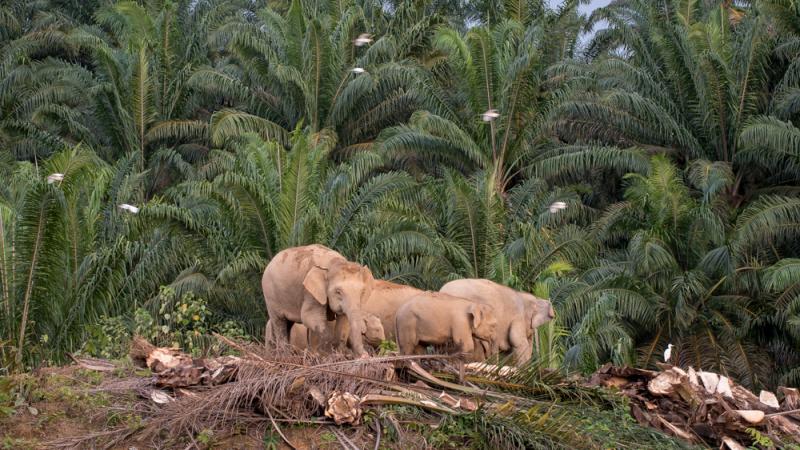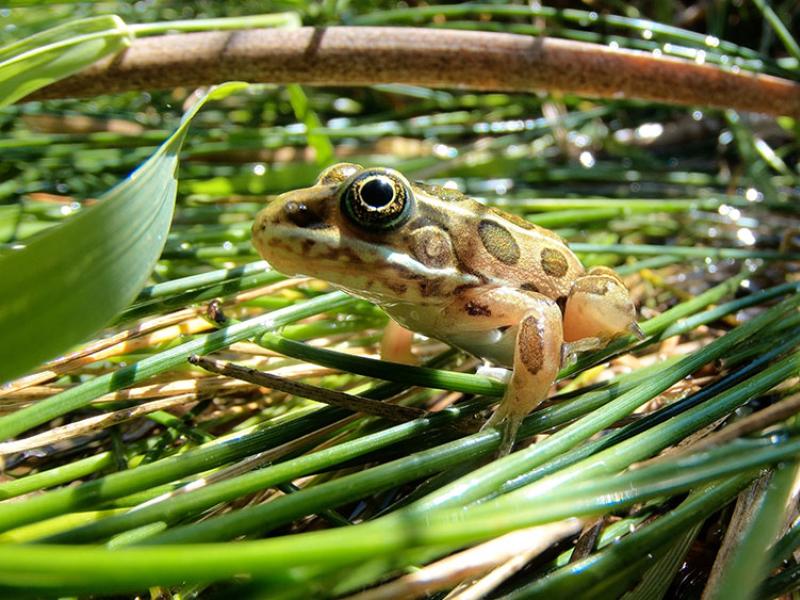Zoo teams up with wildlife rangers to help elephants in Borneo

"You see a lot of intelligence in those elephants," said elephant curator Bob Lee. "They're very socially aware, they look for other males to pal up with."
Lee, who recently traveled to Borneo with several Oregon Zoo colleagues to collaborate with the Sabah Wildlife Department's Wildlife Rescue Unit, was describing a group of five rambunctious male calves who live at the Borneo Elephant Care Center.
"They have their own bonds and their own family. So there will be always the boss, the leader," said Dr. Diana Ramirez of the Sabah Wildlife Department's Wildlife Rescue Unit. "The one that always guides the whole group, which in this case is Danum."
Danum lives in a group of Borneo elephant calves that have lost their mothers. As forests continue to shrink, the number of displaced elephants in the Wildlife Rescue Unit's care has grown. Though the wildlife rangers are doing all they can for the calves in their care, resources are scarce and the work is challenging.
"They take them out to the lake where they can play several times a day, they can wrestle around with each other and play in the mud," said Lee. "But they're also trying to teach them some skills so that they can take care of them later in life as they get larger and that's kind of where we can come in."
Lee worked with wildlife rangers to teach Danum some simple behaviors, like moving his trunk. He believes small steps can lead to huge gains when it comes to animal care.
"There isn't a shortcut to building a relationship like this," Lee said. "We had to take the time to get to know people and allow them to get to know us and through that, the care that the elephants receive is going to improve."
The future of elephants in Borneo is unknown, but one thing is certain: The rangers of the Sabah Wildlife Rescue Unit make a world of difference for the elephants in their care.
"What we are doing now is trying our best, not only with the elephants, but also with public awareness and education," said Ramirez. "So we can have a more promising future, not only for Danum, but for all the elephants that we rescue."
In addition to training support, the Oregon Zoo funds salaries for two elephant rangers with the Sabah Wildlife Rescue Unit as part of its endowment to benefit imperiled Asian elephants.
The Oregon Zoo is recognized worldwide for its Asian elephant program, which has spanned more than 60 years. Considered highly endangered in their range countries, Asian elephants are threatened by habitat loss, conflict with humans and disease. It is estimated that just 40,000 to 50,000 elephants remain in fragmented populations from India to Borneo.
More News

Zoo welcomes 'very special group' of Pacific lamprey
Twenty five Pacific lamprey arrived at the zoo from nearby Willamette Falls.June 26, 2025

A leap forward: Endangered frogs hit survival milestone
For the first time, zoo-reared northern leopard frogs survived a winter in the wild at the Columbia National Wildlife Refuge.June 12, 2025

Tiny Endangered Turtle Hatchlings Arrive At Zoo
Seventeen northwestern pond turtle hatchlings, each about the size of a walnut, are making themshellves at home at the Oregon Zoo this summer.June 4, 2025

